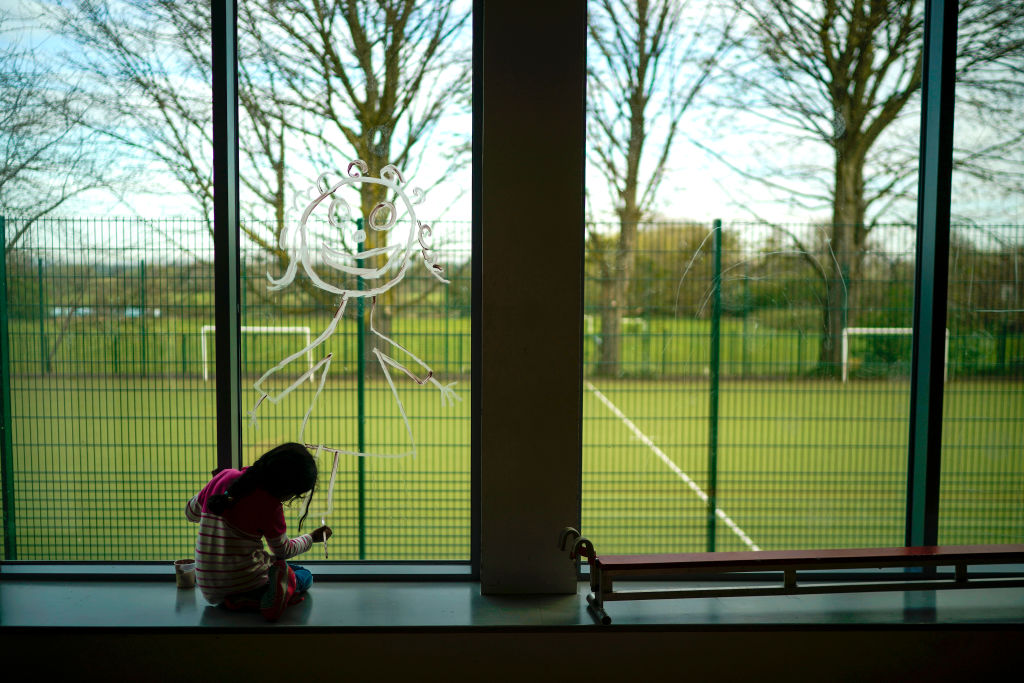In some senses, life in Britain is slowly returning to normal. Thousands of people gathered to watch Royal Ascot last week. Next week is Wimbledon, where 15,000 fans will pack into centre court to watch the finals. Meanwhile at Euro 2021, up to 65,000 people are expected to attend the tournament’s climax at Wembley.
It’s wonderful to see these sporting events back. However, it is deeply troubling that this ‘can do’ attitude doesn’t seem to apply to events holding equivalent significance in children’s lives.
The end of what has been a historically troubled school year is upon us. Usually as children prepare for the summer holidays, it’s a rare chance for them to celebrate and let their hair down: sports days, proms, discos, plays, open days and trips are the traditional climax marker of a school year.
The end of what has been a historically troubled school year is upon us
However, for the last fortnight, social media has been awash – at first with a trickle but now with a flood – of reports of these rites of passage being pared back, ‘virtualised’, or simply abandoned.
Sports days have been closed to parents or aborted entirely. Transition and open days are by default online, despite the fact the choice of school can make or break a child’s life chances. Proms, discos and parties have been axed or, like the mini-cab that’s always ‘just around the corner’, postponed until some unspecified autumn date.
One parent tells me of a sports day which is now simply ‘with classmates’ in the normal PE lesson; another of a prom abandoned at such short notice that her children had already bought outfits. ‘There were tears,’ she told me.
There have been hundreds of examples given for why such events have been scaled back or called off altogether. ‘Covid guidance’ is a frequent excuse. So, too, is the need to keep children in bubbles, or the difficult of socially distancing at end-of-term events.
The postponement of the government’s roadmap clearly hasn’t helped matters. Many of these events would ordinarily be held indoors, and unlike weddings, these have not been granted exemptions. Schools have also been let down by poor guidance: a clarification from the Department for Education that spectator groups of up to thirty were permitted at sports events appears to have come too late for many schools.
Make no mistake: these events are profoundly important for young people. They are key markers of transitions between periods in life which do not come around twice. The pride and ambition they can spawn (not to mention the lessons in losing, or missing out) have the potential to change destinies.
One mother, now working in childcare, tells me she doesn’t believe she would have pursued that path had it not been for a chance meeting at a school sports day; another recounts her journey from school play to Royal School of Music to West End theatre. One parent speaks of an older child who in a happier year was awarded a leavers physics award; the teenager was so inspired by the subsequent conversation with a physics professor it led her to pursue a medical engineering degree.
For parents, how many of us feel the dismay of being both literally and metaphorically locked out of our children’s school lives – and for the second year in a row? My four year old, second youngest in her school, received a certificate for ‘Outstanding Perseverance in the face of Adversity’ during her school sports day (details remain sketchy, but apparently the egg and spoon race caused some distress). How I and my husband would have loved to be there to cheer her on and wipe her tears away.
We should be concerned, too, about the long-term societal costs of these missed moments. Children will grow up to be the sportspeople, actors and musicians of tomorrow, but for that to happen a childhood love of sports, drama and music must be cultivated, not curtailed.
It’s a devastating indictment of the priorities of our society that whilst in London, football fans crowd the streets in their thousands, down the road, parents are asked to watch children’s sports days on Zoom. For how much longer must we continue to let our children down?






Comments